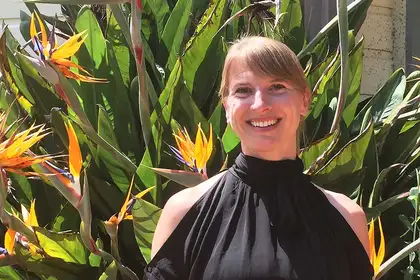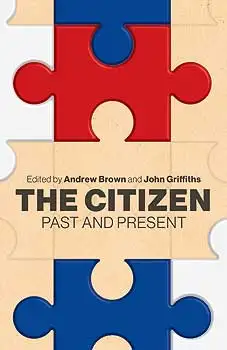
Dr Emily Beausoleil's opening chapter explores modern debates around citizenship in a globalised world.
What can history tell us about the state’s duty to its citizens? A bold and timely new book from Massey University Press brings political theorists and historians from the College of Humanities and Social Sciences together to examine the role of, and need for, a critical, global and active civil society.
From Ancient Rome to Brexit and heartland New Zealand in the 21st century, essays in The Citizen - Past and Present (edited by Dr Andrew Brown and Dr John Griffiths) examines how ordinary citizens find their way, exercise their rights and fulfil their duties.
Co-editor Dr Brown, a lecturer in medieval history in the School of Humanities at Massey, says in his introduction that debates on the definition of citizenship, including the tensions between rights and duties of the citizen – are complex in the modern era of globalisation, which he says has “destabilised the simple association between citizenship and the nation-state”.
Discussions of citizenship also encompass cultural comparisons, as well as exploring notions of conformity to communal values for the ‘common good’ versus freedoms and rights to hold alternative viewpoints.
The book’s 11 chapters – ten written by Massey University authors – include Dr Emily Beausoleil’s opening chapter Twenty-first century citizenship: Critical, Global, Active, which examines the meanings of citizenship in a liberal democracy like New Zealand, and what she terms a “crisis” of democracy reflected in public disengagement from and disaffection with formal politics.
Among key issues for the 21st century, she says, is “how cosmopolitan citizenship relates to local loyalties, given the ease with which we deny and rationalise global responsibilities, and how it might be institutionalised in practical terms.”
In the following chapters, understandings of citizenship in Early Greece and Rome are covered respectively by Daniel Ogden, a Professor of Ancient History at the University of Exeter (the only non-Massey contributor), and Dr James Richardson, a specialist in Roman republican history. Dr Brown delves into medieval citizenship, and religious historian Dr Christopher van der Krogt’s chapter, Jews & Christians as second-class citizens in Islamic Egypt provides insights into Middle Eastern citizenship issues.
Other writers address the forces influencing how citizenship has evolved in the New Zealand context, including Dr Geoff Watson’s Sport & Citizenship in New Zealand and Professor Michael Belgrave’s All Rights & Privileges of British Subjects: Māori & Citizenship, Taking the Long View.

Book cover (Massey University Press).
Q&A with Dr Andrew Brown:
- Now that it’s published, what pleases you most about The Citizen: Past and Present?
It’s the range of periods and societies compared and contrasted, from ancient to modern – reaching across the disciplines of history, classics and politics at Massey. And a publisher prepared to invest in this important subject. - Why is discussion of citizenship important?
It’s so central an issue to the healthy functioning of modern democracies. Open any newspaper, or better still, read Emily Beausoleil’s chapter on Twenty-First-Century citizenship: has discussion of it ever been so challenging? - What can we learn from looking at earlier models of citizenship?
A sense of perspective. How can the modern citizen grapple with present-day problems without engaging with the past? So often, it turns out, problems are not new (immigration, for instance); while newly-defined notions of citizenship prove to be highly contingent on unstable circumstances. - Do students find examining citizenship challenging and relevant?
They do. The new BA core courses at Massey focusing on citizenship have made this plain. - Who did you and your co-editor John Griffiths draw together as the team of contributing writers?
The book began life as a workshop event in 2015 on past citizenships, bringing together colleagues mostly from the History programme. Some experts in other fields were roped in later – we’re grateful to Professor Daniel Ogden for his piece on citizens (and serpents!) in Ancient Greece. But the particular pleasure of the book was to be able to ‘talk’ to colleagues when so often we have so widely different areas and periods of interest. - Tell us about one major new thing you learnt from reading and working on their chapters.
How often ‘citizenship’ has proved to be a divisive issue. Despite its inclusive connotations, it frequently worked to exclude, be it in Ancient Greece, medieval Egypt or nineteenth-century New Zealand. Does defining who the ideal citizen is always mean defining who isn’t, even now?
For more information visit the Massey University Press site here.